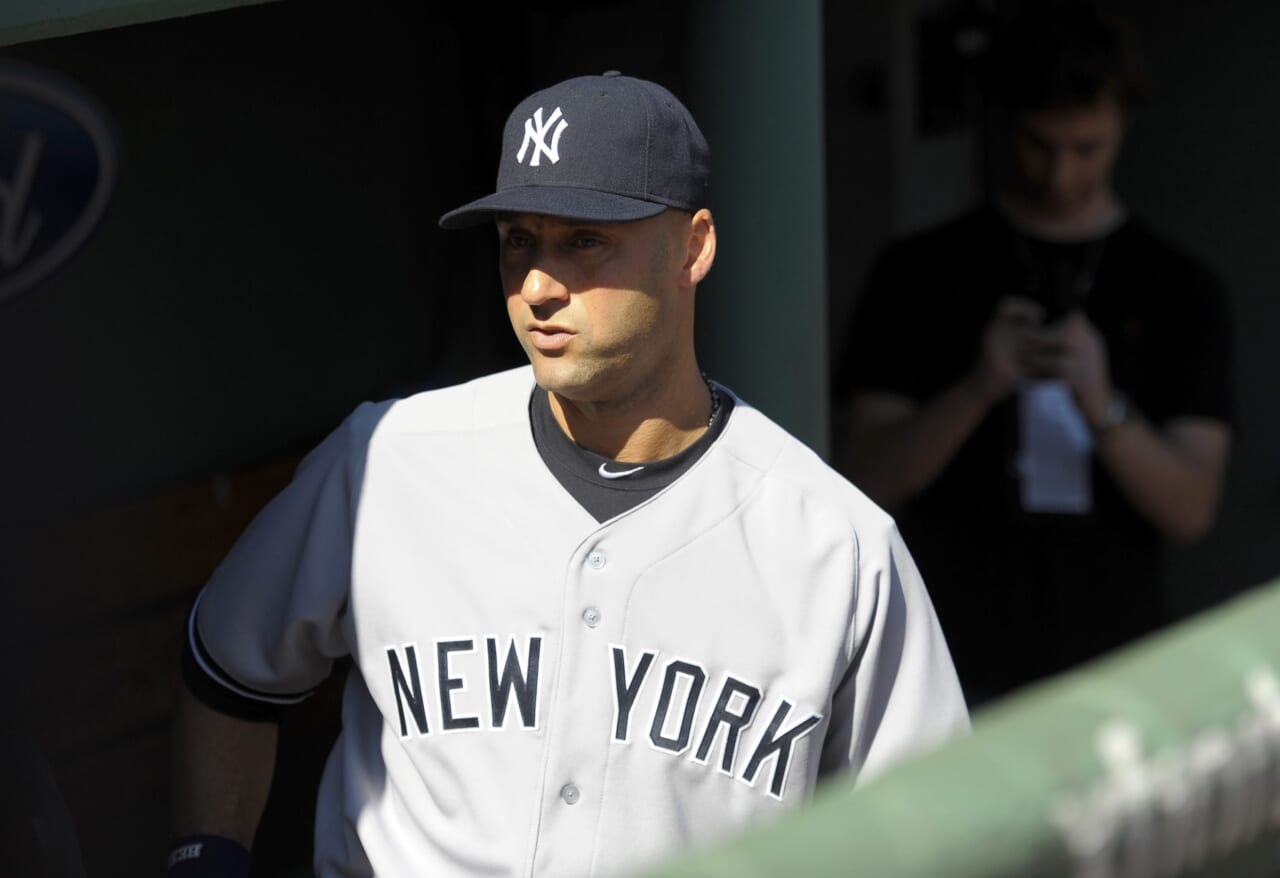Before embarking on a Hall of Fame career that saw him earn Rookie of the Year honors in 1996, New York Yankees‘ legend Derek Jeter had a brief stint with the big club in 1995. His manager at Columbus Clippers, the Triple-A affiliate of the Bombers, surely remembers the moment.
In a fascinating recollection of events by MLB.com’s Mark Feinsand, we are met with the fact that Derek Jeter, the man that broke so many postseason records, actually had to fail for a brief period of time before reaching stardom.
Jeter was the New York Yankees’ top prospect when he got the call to fill in for an injured Tony Fernandez. “I made him aware that he was going up there for the time that Tony was hurt, and when Tony was able to come back, he was going to come back to me,” said Evers, now serving as the Twins’ catching instructor on the Major League coaching staff. “He was excited to go there for the first time and be the guy.”
Jeter was Baseball America’s Minor Leaguer of the year in 1994, but the Yankees called up Robert Eenhoorn first. He went 0-for-7 and GM Gene Michael called up Jeter on May 29, 1995 for a series in Seattle.
“I was always criticized for not sticking with our young players,” George Steinbrenner told the New York Post days before Jeter was called up. “I was always accused of giving up our young talent. We’ve got some fine young talent. Now we’ll find out about them.”
Evers went to Jeter’s hotel room to tell him he was going to be a big leaguer. “I told him, ‘The simple fact is that you’re getting the opportunity, so make the most of it. Come September, if they need you, you’ll be ready to go back up there. After that, hopefully things work out and you can be the guy.’ He was going up there and prove to them that they were making the right choice.”
Buck Showalter, the New York Yankees’ manager back then, wrote Jeter’s name in the ninth spot in the lineup.
“I was trying to figure out how he was going to help us,” Showalter said in 2014. “I knew he would run and steal a base, and we felt like he could catch the ball. I mean, this was two years removed from making 60 errors in Greensboro.”
Jeter went 0-for-5 in that game, including a strikeout in the 11th inning with the winning run at third. The Yankees lost.
Jeter went for a bite to eat with his father Charles, who had flown to Seattle to see Derek’s debut. They settled for McDonald’s.
“It was the only place that was open,” Jeter told The New York Times in 2009. “I treated.”
The next day, Jeter went 2-for-3 with a walk, but the Yankees were swept. He was struggling, yet Showalter saw something in him.
“The big thing everybody felt comfortable with is that he was going to be as good as he was capable of being,” Showalter said. “That’s a great accolade to pay somebody, because that’s what keeps managers, coaches and front offices up; ‘I wonder if he’ll ever reach his potential.’ Then the sky is the limit.”
The Yankees gave him one more shot
Fernandez returned on June 8, but the Yankees wanted to take a longer look at Jeter. So they had him start 13 straight games, and he batted .234 with three doubles, a triple and six RBIs, with as many hits (11) as strikeouts (11) in 47 at-bats.
And right when he was supposed to play in Detroit (close to his hometown) in front of his loved ones, the Yankees decided to send him down alongside Mariano Rivera.
“I think I was guilty by association,” Jeter said in 2014. “They sent us down. Our bags were packed and we were going to Detroit, so there was a lot of friends and family that had to change their plans.”
“Man, me and Mo were so depressed,” Jeter told the New York Post in 2010. “It was terrible. You never want to be sent down, especially when you’re somewhere you think you can play.”
“We were devastated; we were almost in tears,” Rivera said last year on MLB.com’s Full Account podcast. “The feeling we were feeling that day, we didn’t want to feel that again ever. That moment was difficult; it was hard, it was tough. We had never been sent down from nowhere; Minor Leagues, we always went up. Both together the same day; if you ask him, he would tell you it’s my fault because I didn’t do my job. It was something we both had to go through to understand the abilities and the capacity that we had to get better.”
That’s the story of how Jeter had to fail to experience success later on. In 1996, he slashed .314/.370/.430 with 10 homers, 14 steals and 104 runs scored en route to the ROY award. He made the New York Yankees proud.
